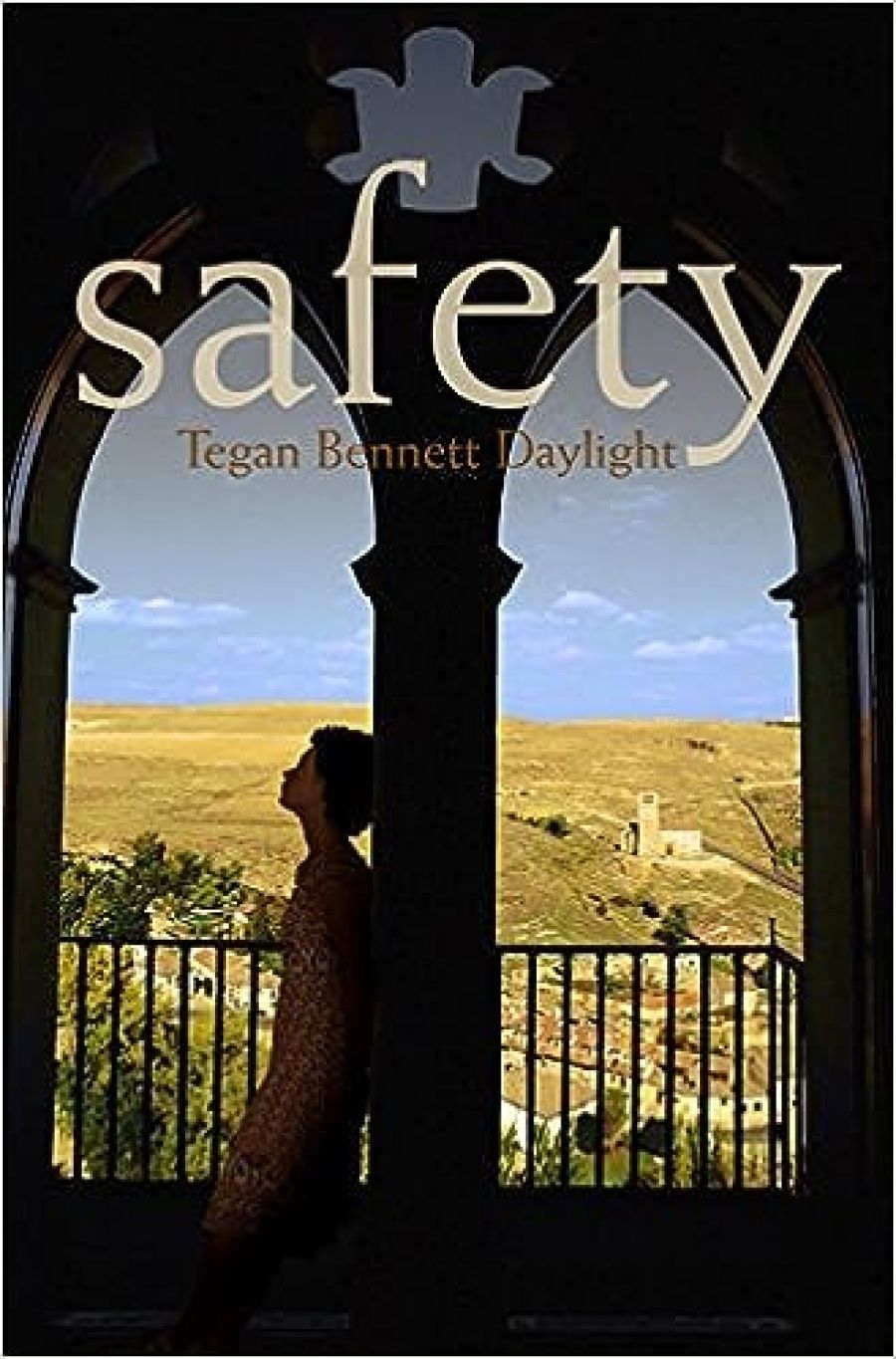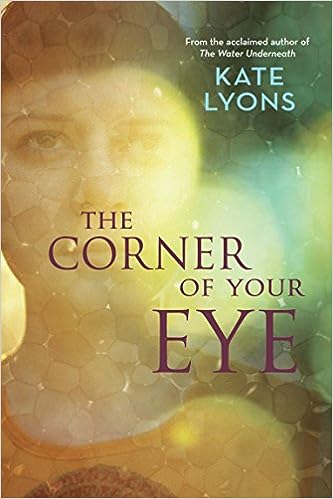
- Free Article: No
- Contents Category: Fiction
- Review Article: Yes
- Article Title: Incomparable heights
- Online Only: No
- Custom Highlight Text:
There is a scene in Kate Lyons’s The Corner of Your Eye in which the narrator, Lucy, watches her daughter, Flo, being comforted over the death of a bird by their kind but bumbling friend, Archie. As Archie soothes Flo, hugging her and talking to her about what they will do next, Lucy stands apart, not knowing how to act. She feels negligent and guilty: ‘I felt like a pretend mother,’ she says. ‘A bloodless cut out.’
- Book 1 Title: Safety
- Book 1 Biblio: Vintage, $23.95 pb, 224 pp
- Book 1 Cover Small (400 x 600):

- Book 2 Title: The Corner of Your Eye
- Book 2 Biblio: Allen & Unwin, $22.95 pb, 360 pp
- Book 2 Cover Small (400 x 600):

The Corner of Your Eye describes Lucy’s return to Sydney from the North Coast, two years after her daughter’s disappearance. Twelve-year-old Flo ran away from their decrepit inner-city squat following an argument with her stoned mother. She stormed out declaring her intention to go to her father’s apartment, but she never arrived.
Lucy begins a belated search for Flo and the man she believes was responsible for her daughter’s disappearance. Over time, grief and guilt have stripped away her old habits of evasion, and there is a penitent, masochistic edge to her obsessive investigation. Lucy revisits old friends and lovers, trying to fill in the gaps from the days and months before Flo’s disappearance. We are admitted into the darkest parts of her psyche as she recalls the details of their precarious home life and of her volatile relationship with Flo: the fights, the poverty, the regrets; the exhaustion that comes from trying to raise a child alone.
The Corner of Your Eye succeeds in large part because Lucy, despite her obvious failings, is a complex and engaging character. She is shambolic and neglectful of herself and her daughter, but her mind remains sharp and inquiring, even as she tries to erase her sensitivities with dope and beer and speed. She wrestles with ideas and reflects upon her motivations. Though her behaviour is at times repellent, she elicits empathy because she gains insight at the expense of her ego; she is prepared to admit her faults and mistakes, even when she knows it is too late.
Lyons’s narrative has real momentum, keeping up its pace without sacrificing psychological depth. She has an ability to sketch minor characters in a way that is vivid and distinctive, but not caricaturistic. Flo, in particular, whose absence is central to the novel, is filtered through Lucy’s fragmented memories. Her ethereal but cranky presence haunts Lucy’s manic progress through Sydney’s streets, but the depiction of the lost daughter never lapses into sentimentality. Lyons’s ability to infuse her dark tale with moments of levity is also welcome. Lucy’s surfie housemate, Archie, hopelessly impractical, naïve, and addicted to smack (or just about anything that will deliver oblivion), has a buoyant sense of humour that tempers the novel’s bleakness. Her cruel and vain ex-lover, Kurt, has his bleached teutonic persona undermined by the revelation that ‘his real name is Raymond and he’s just a guy who’s good with computers from a red-brick bungalow in Baulkham Hills’.
Tegan Bennett Daylight’s third novel, Safety, is in many ways an accomplished piece of work. Daylight has a spare, clean prose style and is observant of place and domestic detail. She is interested in the way innocence can be trampled, and in the way the instinct for self-protection can impede emotional growth. Her protagonist, Elizabeth, has experienced two formative events in her teenage years, which have left her wounded but resolute: the death of her best friend Rita during a high-speed joyride; and her rape by her first boyfriend, Richard. She later meets and falls in love with Ross, a fellow university lecturer and moves into a palatial house on the Parramatta River. Their relationship is easy and they live comfortably, but not long after the birth of their first child, Ross’s estranged father, Allan, calls from Spain. He is dying and wants to see his son. Ross wants nothing to do with Allan, on account of his traumatic childhood, but Elizabeth convinces him it is important that he makes peace. Their journey to Spain is confronting in unexpected ways. Elizabeth’s emotional inadequacies are exposed by the exhaustion of motherhood, just as Ross is in dire need of support; while her strong aversion to sexual intimacy strains their relationship.
Brutal images of bulls and matadors appear on tele-vision throughout their time in Spain. The bloody scenes distress Elizabeth, but Ross feels that they should attend a bullfight for the cultural spectacle. As Elizabeth reflects on the cruelty of the sport, the echoes of Sylvia Plath’s poem ‘The Goring’ – written during her honeymoon in Spain in 1956 – are striking. Plath saw the bullfight as ‘Cumbrous routine, not artwork’. She was repulsed by ‘The ritual death each time botched among dropped capes, ill-judged / stabs’. This parallels Elizabeth’s identification with the bull’s suffering, while everyone around her crows about the prowess of the matador and the importance of tradition. The symbolism is obviously sexually loaded, yet Elizabeth does not have the depth required to reflect upon her own smugly held assumptions about female submissiveness and mute suffering. Invocation of a feminist martyr and scenes of ritualised cruelty are appropriate for the dramatic concerns of Safety, but are undermined by the flatness of Elizabeth’s character.
The televised bullfights and the pressure to attend a corrida act as the catalyst for a series of arguments between Elizabeth and Ross. The final one sees Elizabeth at last attempting to be open about her feelings and her past. But her revelations are ultimately hollow; her self-confessed vulnerabilities just don’t ring true. In failing to equip Elizabeth with some complexity and maybe even a little wit, Daylight has stifled a potentially fascinating portrait of contemporary feminine mores.
Daylight’s employment of an epigraph from A.L. Kennedy’s excellent On Bullfighting (1999) promises an ambivalence and complexity of theme that are just not delivered. Kennedy’s acknowledgment of ‘the black joke winking under it all – the constant portrayal of the innocent entering an unknown world, being punished for its own nature’ is echoed in Daylight’s novel, but it is a sanitised approximation due to the weakness of Elizabeth’s character. In the final pages of the novel, Elizabeth, Ross and their baby daughter are flying home through the night. Elizabeth catches her reflection in the plane window and concludes:
It was not possible to be protected. Rita was gone, and Richard had been cruel, and stupid. Allan was dead without saying sorry. The bullfight was not a beautiful meaningful dance, but an enactment of savagery and stupidity, like life itself. People and animals lived in fear and died in pain. And there was nothing holding the plane up but luck, and the plane itself.
Although this is presented as a moment of insight, it is in fact an empty epiphany that underlines just how little Elizabeth has learned about herself and those around her. Her observations about the meaninglessness of life and the universality of suffering are trite; her ideas about notions of innocence and experience have not been earned, and so come across as cheap nihilism; and she is obviously ignorant of the laws of aerodynamics. Elizabeth draws her conclusions without imagination or empathy. She claims a position of intellectual enlightenment for herself and the novel that has simply not been attained.


Comments powered by CComment